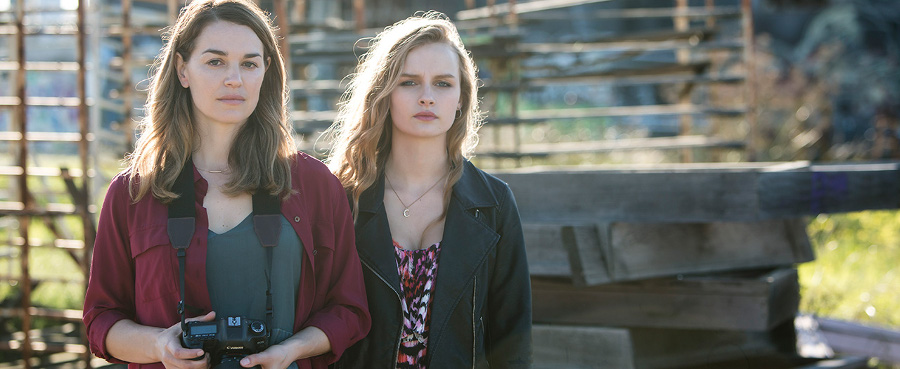https://www.youtube.com/watch?v=TIVPiylHQ08
Ensuring women in the film industry receive equal opportunity to bring their ideas to the screen is about much more than meeting diversity targets. It is about fostering perspective; the perspective required to craft stories told by women, about women, in refreshing, powerful ways.
There are, currently, few better examples of this than Undertow, the remarkable feature debut from Victorian filmmaker Miranda Nation. Directed, written, produced, starring, shot, scored, and edited by women, the film transcends its deceptively simple premise to become one of the most thoughtful and memorable Australian films this year.
Undertow is the story of Claire (Laura Gordon, Joe Cinque’s Consolation), a photojournalist recovering from the stillbirth of her child. The trauma triggers a divide between Claire and her husband, Dan (Rob Collins, Cleverman), further widened when she comes to suspect he is having an affair with a precocious local teenager, Angie (Olivia DeJonge, The Visit). Claire approaches Angie to discover the truth, but when Angie reveals that she’s pregnant, the two women start to bond, growing closer as a storm of grief, deception, and scandal brews around them.
While the conflict that flows through Undertow frames it as a thriller, the film’s true strength can be found in the tender exploration of its characters’ internal battles. Nation has woven her narrative with such subtle complexity that the characters – Claire and Angie in particular – feel far deeper than most audiences meet in modern 100 minute movies. That’s a testament not only to Nation’s ability as a writer, but the importance of having a woman tell this tale. The intricacy with which the two characters respond to their pregnancies is something few male screenwriters could portray with such honesty and empathy.
This intricacy is bolstered by strong performances from the entire cast. As Angie, DeJonge captures the irreverence and faux-confidence of a young girl far out of her comfort zone. She’s charismatic, sharp, but more vulnerable than she dares reveal. Collins’s Dan is patient and kind. He’s lost himself in his work following the death of his child, but his love for Claire is clear, even if the trust between them wavers. Included in the mix as well is Dan’s friend and former footballer Brett, played by Josh Hellman. Hellman breathes empathy into a character who represents just about everything wrong with celebrity lifestyle.
The undeniable standout is Laura Gordon. Conflicting motives behind her decision to become close to Angie, a fractured relationship with her own body, and a confronting obsession with death make Claire the kind of character that only a great actor can embody seamlessly, and Gordon delivers masterfully.
Visually, Undertow is equally compelling. Cinematographer Bonnie Elliott (one of only 10 women accredited by the Australian Cinematographers Society) has an eye that can enhance any story, and here she captures the sense of displacement both Claire and Angie are stricken by with a remarkable delicacy. Harrowing visual motifs frequently enhance the film’s poetic imagery without ever feeling overused.
Despite a few narrative hiccups, including a slightly obvious conclusion, Undertow proves itself a compelling and accessible film told in a way only a woman can. Nation has confirmed herself as a brilliant new voice in Australian feature filmmaking, and her achievements here deserve to be celebrated. Go see it.
—
Undertow screens Saturday, August 18th as part of the Melbourne International Film Festival.
A national release date is yet to be announced.

